- Home
- Michael Wallace
Not Death, But Love (Quill Gordon Mystery Book 3) Page 12
Not Death, But Love (Quill Gordon Mystery Book 3) Read online
Page 12
“Duty calls. Actually, it grows on you after a while. See you at six.”
After she drove off, Gordon looked around the parking lot. There were several groups of people talking after the meeting, including a foursome that included District Attorney Southworth, Judge Fletcher, Cameron Winters, and Sheriff Ballou. Gordon was beginning to see why Charlotte London might have trusted him, an outsider, with her family history. He still had no idea what was in it that could have gotten her killed, but after the meeting today he didn’t see how anyone prominent in town would have the inclination to press forward on anything that could have been unpleasant for one of his peers. The people here are too close to each other, he thought. They hang together. Everything that happens is a hometown verdict.
‘THAT BAD?” said Peter, as they pulled out of the driveway at Stanhope House.
“I’m probably overreacting,” Gordon said. “But it was definitely a good ol’ boy fest”
“Speaking of which, what was your impression of the Paris end of London & Paris?”
“Roger — he’s the old man — is a character straight out of Sinclair Lewis. Thinks the Chamber of Commerce can do no wrong, accepts all the conventional pieties. Ron — the second son — seems to be a bit sharper and more well-rounded. You might even find some irony in him if you dug deep enough.”
“So it was just the father and son?”
“Two other sons, but they were absent. Robert, the oldest, was apparently out looking at some property today, but I should meet him tomorrow. The youngest, Richard, has been living in San Francisco for years, so he’s probably out of the picture as far as what we’re looking into.”
“Not surprised he had to leave town,” Peter said. Gordon shot him a look. “He has the wrong vowel after his R.”
Midway into Arthur they turned right on County Road 27, which crosses the North Fork of Hawk River a mile out of town and follows it upstream for about ten miles before looping back to the east-west state highway. Several dirt roads lead from the county road to mountain lakes and meadows, and in one instance to an old hotel and hot springs developed as a resort early in the century.
“How about you?” Gordon asked. “What were you up to this morning?”
“Satisfying my curiosity. Actually, I discovered something interesting.”
“Spill.”
“No dice. I’m saving it for the group tonight. It’s not just you and me, Gordon. We have a team now.”
Two miles out of town, the county road had changed from badly paved to densely packed dirt that nonetheless kicked up dust behind them. They saw two cars parked in turnouts, the owners presumably fishing. A bit farther, the road moved away from the river, with forest in between and logging roads, marked by numbers spray-painted on trees, leading toward the water.
“We’re looking for 148,” Gordon said. “We’ve passed 128 and 138, so we should be getting close.”
“I hesitate to say anything, but it seems to me the same car has been behind us for quite a while now. Does that affect our plans?”
Gordon looked in the mirror. “Hard to see much through the dust. Dark sedan is about all I can say for sure. Here’s our turnoff. Let’s see what happens.”
He turned left on the logging road and pulled as far to the right as he could on it, stopping the Cherokee so the other car could pass, if it, too, made the turn. But it sped past the logging road in a cloud of dust and kept going.
“Guess we were just going too slow for him,” Gordon said.
He started forward again, and drove a half-mile to an intersecting dirt road, on which he turned left. A hundred yards down the road an old, one-lane wooden bridge with no railings crossed the river. Just before the bridge was a turnout, big enough for four or five cars but empty at the moment. From it they could look down on a broad meadow below, with the river — more like a wide stream at this point — running through it.
“There will be fish in there, if I’m not mistaken,” Gordon said. “Let’s try to make their acquaintance.”
They put on their waders and vests and followed a well-worn path to the river. When they reached it, Gordon knelt and stuck his hand in the water.
“Feels like 55 to 60 degrees,” he said. “We may have gotten here at the right time. Let’s go upstream a ways and identify the good spots, then work them on the way back.”
Gordon stopped from time to time to check out likely places: riffles, deep pools, overhanging banks, logs and boulders in the stream that would provide protection against predators. They began by fishing dry flies but caught only two or three trout six inches or smaller. They switched to nymphs, which imitate insects emerging from the larval stage beneath the water, and had more success, catching and releasing three Rainbow Trout 12 to 14 inches and several more Rainbow and Brook Trout 9 to 11 inches. The clouds that had been bunching up in the west that morning had become thicker; they blocked the hot afternoon sun but didn’t appear to threaten rain. At four o’clock there was a caddis fly hatch, the fish began feeding on the surface, and the men switched to dry flies, catching several more good fish in the 10 to 14-inch range. At 4:45, Gordon looked at his watch and declared it was time to head back. He hadn’t thought about Charlotte London or her family history for more than two hours and felt mentally refreshed.
As they approached the Cherokee from a distance, Gordon thought something wasn’t quite right, and as they drew closer, he could see that both doors on the driver’s side were open. He was certain he’d locked the car before they started down to the meadow, and he broke into a jog. Then he realized that the driver’s window had been smashed. He could see shards of window glass on the dirt next to the car and on the seat and floor inside. He swore.
His backup fly rod, worth $400, was still in its case on the back seat, and his bag with hundreds of dollars of equipment was next to it. A number of objects in the back seat and the rear storage area seemed to have been moved, but, as far as he could tell, nothing had been taken.
“Let’s get the glass off the seats and head back,” he said. “I saw an auto-glass shop in town, and maybe they can deal with this.
“Another burglary with nothing taken,” Peter said. “I don’t think what our man was looking for was in the car at any rate. Damn, Gordon. I feel bad about this. I should have told you earlier instead of being cute about it.”
“Told me what?”
“When you were sampling the cultural amenities of the Rotary Club, I walked around to the motels in town and asked if any of them had gotten a call Tuesday morning from someone asking for a Quill Gordon. Good that you have a memorable name. Three of the five said yes, and the other two couldn’t rule it out altogether.”
Gordon sat in the driver’s seat and slumped forward.
“Somebody has been looking for you since Tuesday, the day after Charlotte London died.”
“I REALLY TRIED TO GET IT ALL DONE, but it was just impossible today. Our summer reading program is going full swing, and Nancy, who is supposed to read to the under-7 group, called in with morning sickness. She’s missed so many days she might as well resign right now, but of course she won’t, so not only did I have to read to the little nippers — who, by the way, must have been fed amphetamines before they came in — but we were one librarian short all day. And then Mrs. Marshall came in with two overdue books totaling $2.35 in fines and insisted, positively insisted, that there must have been some mistake and she wasn’t going to pay. She practically threatened to take the matter to the Supreme Court, and tied up the front desk for 20 minutes arguing. Not only did I think we’d have to call the sheriff to escort her out, but guess who was waiting in line behind her? None other than Olga Menke, whose husband, as you know, is president of the Forest County Taxpayers Association, and who will no doubt be getting a full report over dinner tonight about the waste and inefficiency of the public libraries. And I still don’t know if Nancy will be back tomorrow to handle the under-7 reading, plus Naomi is off tomorrow so she can work Saturday, and we m
ay be doubly short-handed. Oh, El,” said Alice Laszlo, “while I’m on the subject, you will do another piece on the summer reading program, won’t you?”
“Anything that happens at the library is news, as far as the Forest Clarion is concerned,” said El.
“So at two in the afternoon, I realized it was hopeless, and then I thought of Karl Bjornstad.” She gestured to the tall, stocky man next to her, in his late sixties with white-blond hair and a stubborn-looking face, “and I thought, of course, we should bring Karl in on this. As you know, El, Karl is working on the definitive history of Forest County …”
“Probably the only history, I’m guessing,” Peter whispered to Gordon.
“ … And there really isn’t anything he doesn’t know about this community, plus he knew Charlotte well and had been talking with her about her family history, and I thought, this is someone who’s smart and knowledgeable and could be an asset to our investigation, so I invited him to come along. I hope that was all right.”
Karl coughed. “Aaah,” he growled. “I’m not so smart. I’m just a plodder who can look through boxes and boxes of files and documents without getting tired or bored. You don’t have to be smart to do that.”
No one had an immediate response to that remark. Gordon looked at Alice — trim, handsome, with gray-white shoulder-length hair, wearing a print dress and sandals — and sensed she was about to speak again, so he jumped in.
“Thank you, Alice, Karl. We’re glad to have you on board. Did Gina explain what our little group is trying to do?” They both nodded. “And you’re willing to help?” They both nodded again. “And you can be quiet and discreet, and talk to no one outside this room about it?” Karl nodded, and Alice made a cross-my-heart sign. “Good. Well, then, welcome.”
The six of them were tightly packed around the table in the newspaper’s small conference room. El and Gordon sat at either end, with Gina and Peter on one side and Alice and Karl on the other. It was 6:15, and no one else was in the building.
“I guess the first question,” said El, “is whether we have any news stories from 1970 to look at.”
“I didn’t get to the library until 4:30, so I only worked on it for a bit over an hour,” Karl said. “You can’t just look at the front page; you have to check every single article in the paper, or you might miss something, so it doesn’t go fast. Per instructions, I began with the first issue of August, 1970, and these are all the stories I found through the end of September.” He took a manila folder about three quarters of an inch thick, and, though El was sitting directly to his left, slid it down the table to his right toward Gordon. “It doesn’t look like they got to the juicy stuff yet, but maybe you’ll see something.”
“Thank you, Karl,” said Gordon. “That’s a good start.”
“I should be able to get all the way through January tomorrow. But before you start reading it, you should probably know something about the history of this town and how The Peninsulas fit in.”
Gordon must have registered some dismay, because Alice jumped in.
“Karl, darling, I don’t know if we really have time for that.”
“I can give you the five-minute version. Well, seven minutes anyway.”
“All right, then, but cut to the chase.”
Gordon nodded at Karl, and he began.
“When California became a state, Forest County was a remote part of it. A few prospectors and cattle ranchers, and they were outnumbered by the Native Americans. It stayed that way for almost 30 years, and then Union Pacific decided to build another rail line through the mountains. Hawk River Gorge was where they decided to do it. They’d be needing a lot of lumber for railroad ties, sluices, water towers, winter dwellings for the workers — all that. So they contracted with an outfit called the Empire Lumber Company to provide the wood. Empire scouted the territory and decided this little valley would be a good place to build a mill.”
Peter, who was sitting to Gordon’s right, picked up the manila folder, pulled it to himself, and began looking at clippings as Karl continued.
“They built the mill in 1879, and two years later a small town had grown up around it. The citizens started thinking about naming it, and, most of them being Republicans, they chose Arthur, after President Chester A. Arthur, who took over when James Garfield was assassinated. There was a splinter group of Democrats who objected, and a lot of them lived in a small settlement a couple of miles south. They named their town, if you could call it that, Conkling, after the Tammany Hall boss Roscoe Conkling. President Arthur was rumored to be his puppet.”
“The point, Karl. The point,” said Alice.
“The railroad provided a market for the local lumber for several years, and when the track was being laid through the gorge, they added a spur line to Arthur. That made it cheap and easy to transport the lumber cut in these mountains to Sacramento, Oakland and San Francisco, so the lumber business kept going strong and the town kept growing. When San Francisco burned after the earthquake, half the lumber to rebuild it came from this area. A few of our old-time families have been living high for almost a century on what the locals call ‘San Francisco money.’ And until about 25 years ago, any kid in this town could go straight from high school, whether he graduated or not, to a job in the lumber business and do pretty well for himself.
“After the war, Pacific Crest Hydro decided to dam the Hawk River to produce electricity for the Bay Area. Between that project and all the housing that was being built in Northern California, Arthur was a real boomtown from the late forties to the early sixties. Lake Año Nuevo started getting a bit of a name as a low-key resort and vacation area, and the Hawk River Highway, which was re-built in the late forties, made it easy for people to drive here.”
“Excuse me for interrupting,” Gordon said, “but I always wondered about the name of the lake. I assumed it was because the dam was built near Año Nuevo Creek, but where did that name come from?”
“Keep it short, Karl,” muttered Alice.
“I’m glad you asked. When gold was first discovered, a lot of people headed into the mountains, following the rivers and streams, looking for more. One of them was a fellow named Francisco Juarez, second son of an old land-grant family, and he led a small group of men up Hawk River late one fall. The exact year is in dispute, but it was in the early 1850s, and the weather stayed mild so they kept going. On New Year’s Day they camped at the junction of a creek that runs into Hawk River and named it Año Nuevo Creek — Spanish for New Year’s.”
“You said Arthur was a boomtown until the early sixties,” Gina said. “It certainly isn’t now. What happened?”
“Several things. The forests had been logged for so long that there were fewer good stands left. The Forest Service started getting pickier and stingier with permits. The state growth rate was beginning to slow down. The environmental movement was gaining steam. All those things combined were putting pressure on the industry. In 1968, one of the three big mills in town, Republic Lumber, closed up and consolidated its efforts in other parts of the state. Three hundred people lost their jobs in one day.”
“That’s quite a few in a town this size,” Gordon said.
“A lot of them moved away for good, which dumped a lot of houses on the real estate market in a short time. The town leaders were looking for something to take up the slack, and tourism seemed like the best thing. That’s when Pacific Crest Hydro put the peninsulas up for bid, and that’s the context in which the debate over their development took place.” He looked around the table. “Any questions?”
“Not a question, but a comment,” Alice said. “Six minutes. That was very good, and it does give some perspective.”
“Yes, it does,” Gordon said. “Thank you, Karl. The problem now is where we go from here. It seems to me that we’re trying to put together a jigsaw puzzle without any idea of what it’s eventually supposed to look like. When we have a blue piece, we don’t know if it’s the sky above or the water below.”
“Speaking as a historian,” said Karl, “the best thing to do is just keep digging. Usually, connections start to be made and the picture begins to form.”
“Along those lines,” Gina said, “the logical starting point would be the two questions in Charlotte’s book draft. Talk to Bart Sturges about what happened and why he changed his vote, and find out more about the accident that killed Ned London.”
“The first one is already set up,” El said. “I got hold of Sturges’ aide and set up an appointment for the Senator too talk to my intern and me at his house on The Peninsulas Sunday morning.”
“Intern?” said Alice. “You have an intern?”
“That’s what I’m calling Gordon for now.” Everyone laughed. “Hey, President Clinton probably has interns, though you never hear anything about them. Why can’t I?”
“Whatever,” Gordon said. “But you’ll have to ask most of the questions.”
“Something else occurred to me,” Peter said. “I’ve been flipping through this first batch of clippings, and I notice most of the stories were written by the same reporter — Adam Beckstein. I don’t suppose anybody knows where he is now?”
Nobody did, but Alice flipped open a small notebook she had brought.
“Spell his name for me. If he’s anywhere in California, I’ll find him.”
“You can do that?” said Gina.
“Old librarian tricks.”
Peter carefully spelled the name for her. “And we need to be careful and discreet about all of this. Gordon is being stalked already.” He briefly filled them in on the ransacking of the room and the vandalism of the Cherokee. The group went silent.
“Alice,” said El. “If you find Beckstein’s name, and better yet a phone number, get it to me right away, and I’ll call him. If the call’s from somebody at the Clarion, he’s more likely to talk or call back. And one other thing. Since the group’s getting bigger and we’ll be meeting through the weekend, I’d like to offer my house as the meeting place, starting tomorrow.”

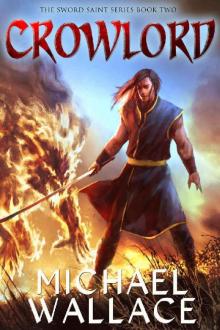 Crowlord (The Sword Saint Series Book 2)
Crowlord (The Sword Saint Series Book 2) Crowlord
Crowlord The Red Sword- The Complete Trilogy
The Red Sword- The Complete Trilogy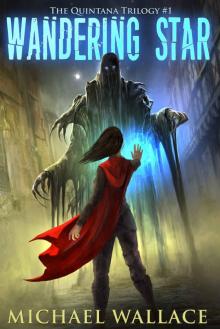 Wandering Star (The Quintana Trilogy Book 1)
Wandering Star (The Quintana Trilogy Book 1)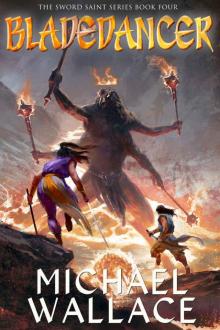 Bladedancer
Bladedancer Sword Saint
Sword Saint The Alliance Trilogy
The Alliance Trilogy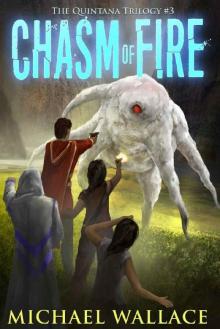 Chasm of Fire
Chasm of Fire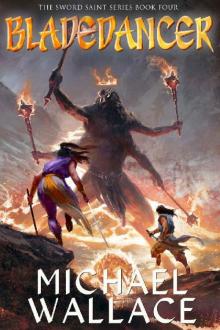 Bladedancer (The Sword Saint Series Book 4)
Bladedancer (The Sword Saint Series Book 4)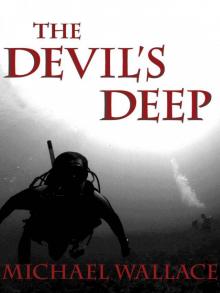 The Devil's Deep
The Devil's Deep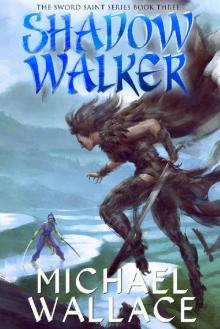 Shadow Walker (The Sword Saint Series Book 3)
Shadow Walker (The Sword Saint Series Book 3) Starship Blackbeard
Starship Blackbeard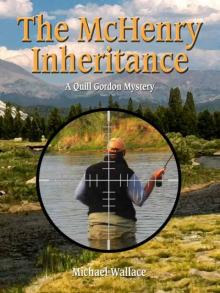 The McHenry Inheritance (Quill Gordon Mystery Book 1)
The McHenry Inheritance (Quill Gordon Mystery Book 1) Sun King (The Void Queen Trilogy Book 3)
Sun King (The Void Queen Trilogy Book 3)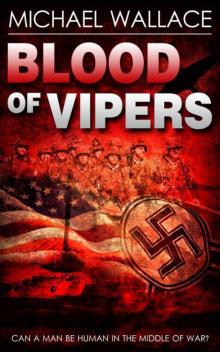 Blood of Vipers
Blood of Vipers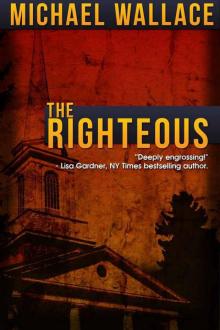 Righteous - 01 - The Righteous
Righteous - 01 - The Righteous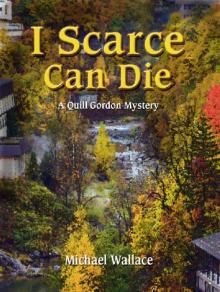 I Scarce Can Die (Quill Gordon Mystery Book 5)
I Scarce Can Die (Quill Gordon Mystery Book 5)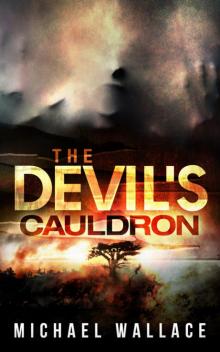 The Devil's Cauldron
The Devil's Cauldron The Wicked (The Righteous)
The Wicked (The Righteous)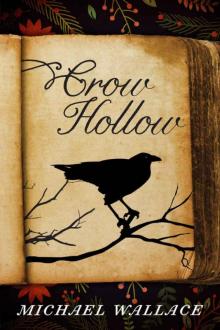 Crow Hollow
Crow Hollow Righteous03 - The Wicked
Righteous03 - The Wicked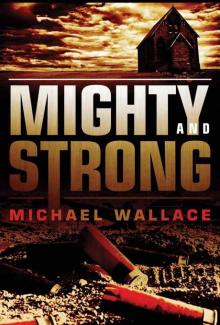 Righteous02 - Mighty and Strong
Righteous02 - Mighty and Strong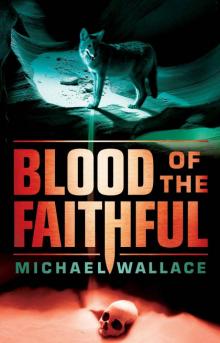 Blood of the Faithful
Blood of the Faithful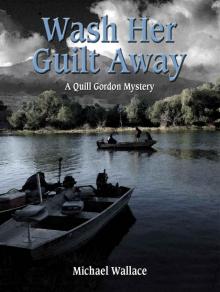 Wash Her Guilt Away (Quill Gordon Mystery Book 2)
Wash Her Guilt Away (Quill Gordon Mystery Book 2) The Kingdom of the Bears
The Kingdom of the Bears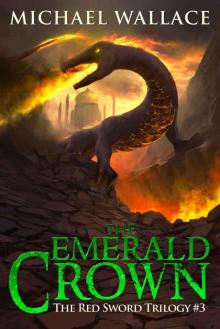 The Emerald Crown (The Red Sword Trilogy Book 3)
The Emerald Crown (The Red Sword Trilogy Book 3)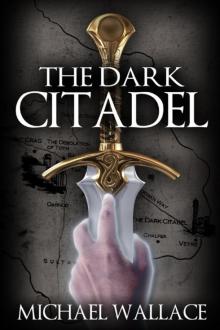 The Dark Citadel
The Dark Citadel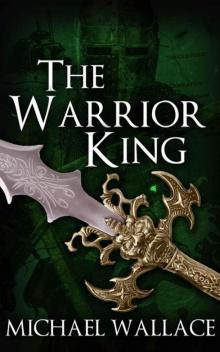 The Warrior King (Book 4)
The Warrior King (Book 4) Rebellion of Stars (Starship Blackbeard Book 4)
Rebellion of Stars (Starship Blackbeard Book 4)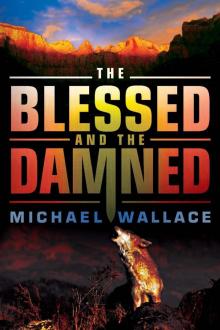 Righteous04 - The Blessed and the Damned
Righteous04 - The Blessed and the Damned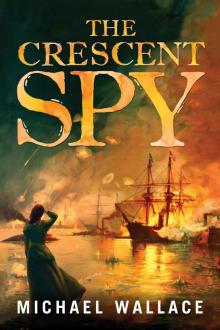 The Crescent Spy
The Crescent Spy Queen of the Void (The Void Queen Trilogy Book 1)
Queen of the Void (The Void Queen Trilogy Book 1)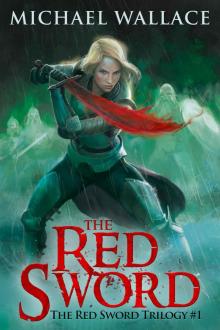 The Red Sword (The Red Sword Trilogy Book 1)
The Red Sword (The Red Sword Trilogy Book 1) The Sentinel (The Sentinel Trilogy Book 1)
The Sentinel (The Sentinel Trilogy Book 1)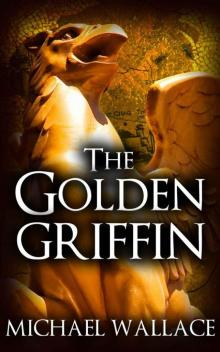 The Golden Griffin (Book 3)
The Golden Griffin (Book 3)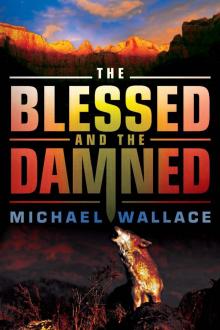 The Blessed and the Damned (Righteous Series #4)
The Blessed and the Damned (Righteous Series #4)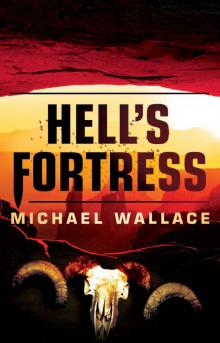 Hell's Fortress
Hell's Fortress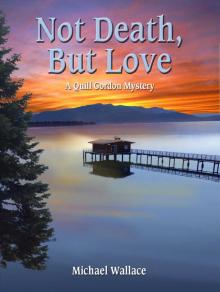 Not Death, But Love (Quill Gordon Mystery Book 3)
Not Death, But Love (Quill Gordon Mystery Book 3) Destroying Angel
Destroying Angel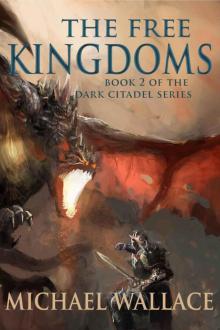 The Free Kingdoms (Book 2)
The Free Kingdoms (Book 2) Dragon Quadrant (The Sentinel Trilogy Book 2)
Dragon Quadrant (The Sentinel Trilogy Book 2) Shattered Sun (The Sentinel Trilogy Book 3)
Shattered Sun (The Sentinel Trilogy Book 3)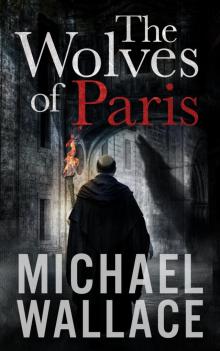 The Wolves of Paris
The Wolves of Paris Lords of Space (Starship Blackbeard Book 2)
Lords of Space (Starship Blackbeard Book 2) Dreadnought (Starship Blackbeard Book 3)
Dreadnought (Starship Blackbeard Book 3)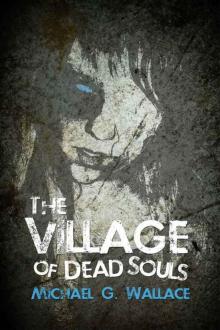 The Village of Dead Souls: A Zombie Novel
The Village of Dead Souls: A Zombie Novel The Black Shield (The Red Sword Book 2)
The Black Shield (The Red Sword Book 2)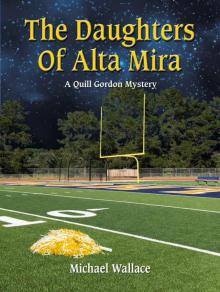 The Daughters Of Alta Mira (Quill Gordon Mystery Book 4)
The Daughters Of Alta Mira (Quill Gordon Mystery Book 4) Mighty and Strong (The Righteous)
Mighty and Strong (The Righteous)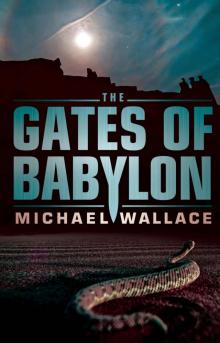 The Gates of Babylon
The Gates of Babylon